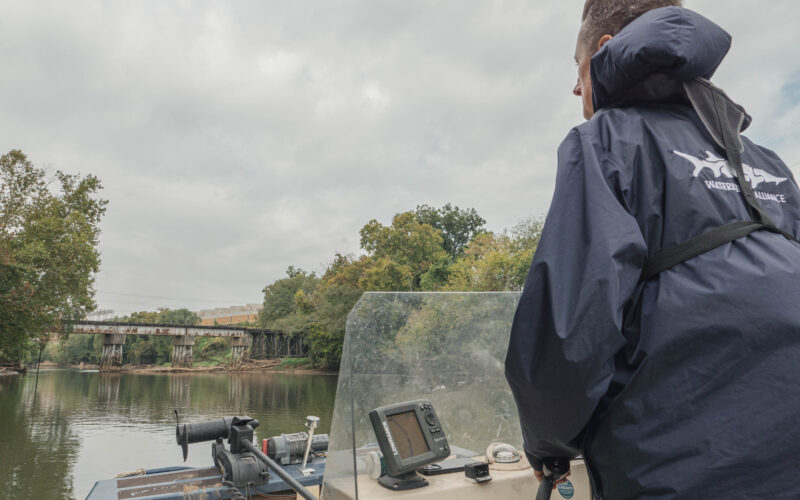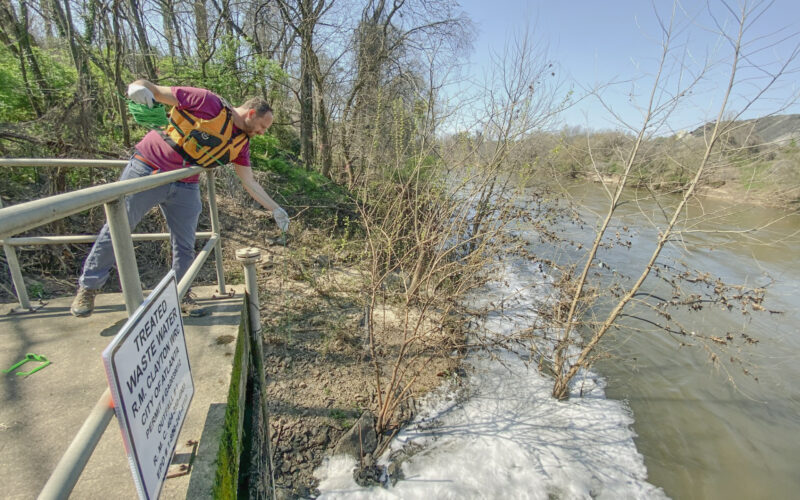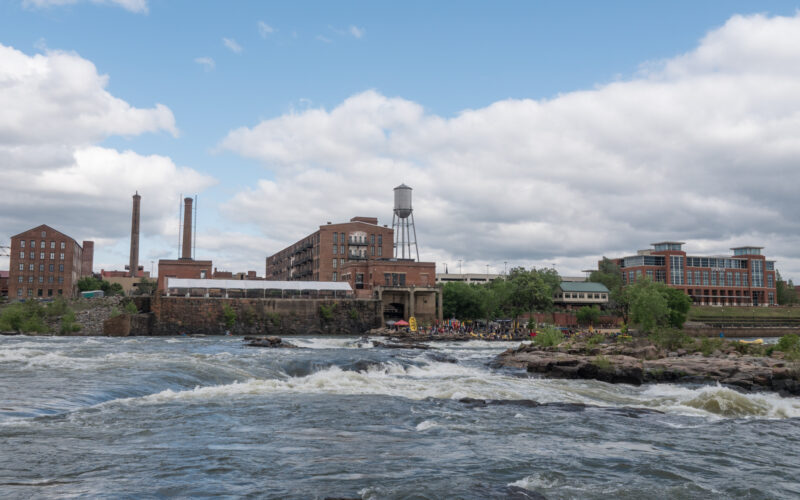Have you ever turned on the tap at the sink and not had water come out? It’s a true feeling of powerlessness. You might have the resources to make do without water for a few hours or a maybe even a day, but many people living in urban and rural parts of the Chattahoochee River basin have lived without water for much longer, sometimes years – until they found help.
Access to safe drinking water is not a given. In the state of Georgia, there are three programs that help qualified residents gain or sustain access to safe drinking water. A fourth program addresses lead contamination in drinking water in Georgia’s schools, helping to ensure that the water we do have access to is safe.
Chattahoochee Riverkeeper’s mission is to protect and preserve the Chattahoochee River for all who depend on it. As part of that goal, we want to ensure equitable access to safe drinking water for everyone, which is why we will discuss helpful water resources over a series of four blog posts. This is the second in the series.
The new federally funded Low Income Household Water Assistance Program (LIHWAP) is a critically important program that will help relieve financial water stress on Georgians. Modeled after the federal Low Income Household Energy Assistance Program to help customers pay their energy utility bills, the new water program will do the same for customers who have fallen behind on water and wastewater bills. The program’s goal is to get as many eligible customers as possible who have been disconnected re-connected, to pay any past due amount, and pay out the minimum/maximum benefit ($300/$1,000).
The Georgia Division of Family and Children Services (DFCS) of the Department of Human Services oversees the energy program and launched the new water program on November 1, 2021. But LIHWAP will be administered by local community action agencies. There are 20 community action agencies that serve all 159 Georgia counties. The community action agencies administer federal programs like Head Start and the energy bill pay assistance program. Ten action agencies serve the Chattahoochee River’s counties and will be solely responsible for implementation of new water program.
DFCS will work with the community action agencies to enroll water and sewer providers in the program so eligible customers can participate. The community action agencies will function as an intermediary between the consumer and the utility, and the community action agencies will pay the bill directly to the water and sewer provider. This could be as simple as physically writing a check and putting it in the mail, but will depend on the agency, the number of eligible customers, and the utility’s payment processes. Renters and multi-family customers who pay a water and sewer bill in their name (that is, the water bill is not bundled with rent and paid by a landlord) are eligible to participate in the program. Georgia is slated to receive approximately $37,000,000 for the water program, which must be expended by September 2023. DFCS anticipates serving between 40,000 and 90,000 eligible low-income homes.
CRK provided supportive public input on DFCS’s implementation plan for the water program. CRK hopes that the program’s implementation will set the stage for the program becoming permanent. A successful program will benefit everyday Georgians, the public water systems they rely upon, and the infrastructure necessary to protect human, environmental, and the Chattahoochee River’s health.


